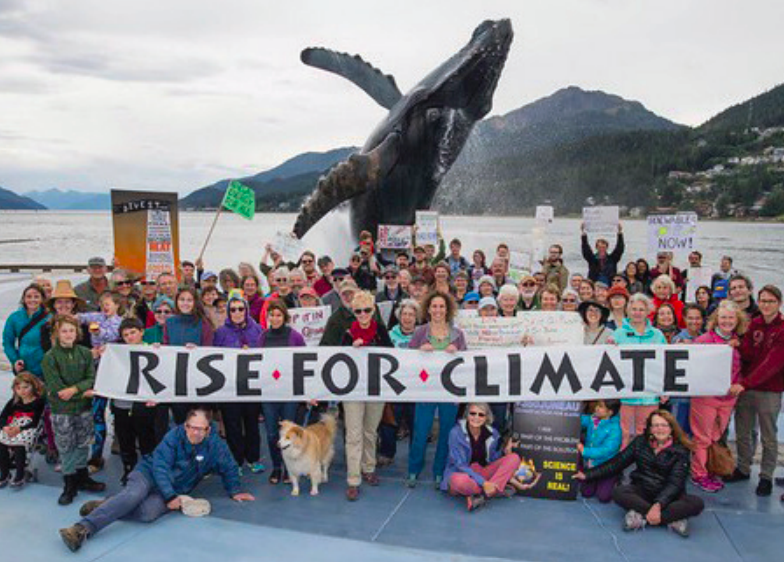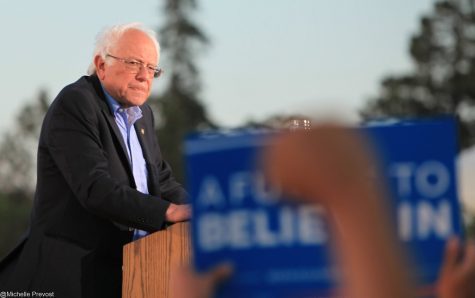Climate Change: A Hot Topic in 2020
As wildfires, hurricanes, and record-shattering heat waves sweep across the planet, it becomes alarmingly evident that procrastination on climate change will have devastating consequences. Amid a political culture of climate denial and shifting blame, we must consider the importance of the issue, especially as we look ahead to the 2020 elections.
To address attempts to downplay the issue: climate change is a pressing disaster that requires immediate international cooperation. This July was the hottest recorded month in human history. The Fourth National Climate Assessment, a federal report released in 2018, warned that unless emissions were curbed, the US alone would face thousands of premature deaths, $160 billion in lost wages due to extreme weather, and economic damages totaling a 10% decrease in the GDP.
Overall, the international response to the crisis has been insufficient. A recent example is the G7 pledge to help Brazil combat the wildfires that have raged through the Amazon rainforest this year. A personal feud between Brazilian president Jair Bolsonaro and French president Emmanuel Macron quickly escalated to sarcastic remarks about Macron’s wife and an angry rejection of foreign aid. Although Brazil has relented and accepted $12 million from Britain, the episode stands out as an unbelievable example of political ego getting in the way. If, as citizens of one planet, nations are to band together to solve this global crisis, the greater good must be prioritized over petty disputes.
Unfortunately, the US seems to be missing the boat on being the climate leader the world needs. The president is too busy blaming other countries, such as his claim that the Paris agreement imposed “no meaningful obligations” on China (a nation on track to reach its pledged goals up to 9 years ahead of time), to justify that the US has not set any emission goals.
As we look ahead to 2020, it’s time for the US to carefully consider which side of history it wants to be on. Every major candidate has announced plans to restructure the economy away from fossil fuels, and the controversial “Green New Deal” has been embraced by many candidates, including Bernie Sanders, Beto O’Rourke, Elizabeth Warren, and even Joe Biden.
The Green New Deal is a non-binding congressional resolution – not policy – that establishes imperative key goals for the coming decades, including net-zero global emissions by 2050, massive cuts in greenhouse gases, investment in renewables, and fortification against natural disasters and pollution. The resolution also focuses on how the resulting shift in the economy could be used to feed wealth into disadvantaged communities. Although it lacks a concrete plan, the deal addresses major climate concerns and represents a bold call to action.
Candidates have jostled to propose what the Green New Deal would look like as a policy. For me, the person to turn to was Jay Inslee, governor of Washington state. The former presidential candidate still hopes the next President will adopt his climate policy, and, at the time of writing this article, has released six comprehensive proposals covering foreign relations, clean energy in electricity and transportation, and how to phase out fossil fuels.
Rather than promote direct government spending, Inslee wisely focuses on research and creating incentives for companies to make new innovations in energy. This will increase efficiency and the odds of bipartisan acceptance, as Republicans continue to falsely label the Green New Deal a socialist plot to take over the economy. Ending fossil fuel subsidies and decreasing their economic viability, in part via a carbon tax, would also incentivize switches to greener energy.
Climate change poses one of the greatest challenges humanity has faced, and it will never be solved without genuine international cooperation. Even the Green New Deal, despite its advantages, is still more of an acknowledgment than a solution. It is long past time we stop debating whether climate change exists, and begin to enact the change needed before it’s too late.




